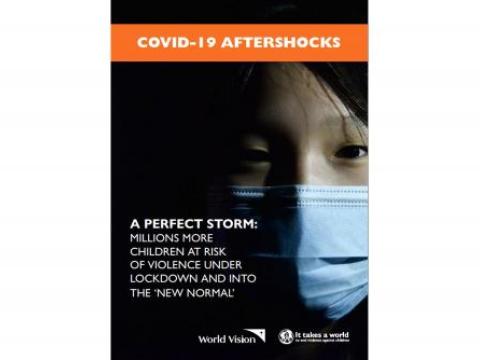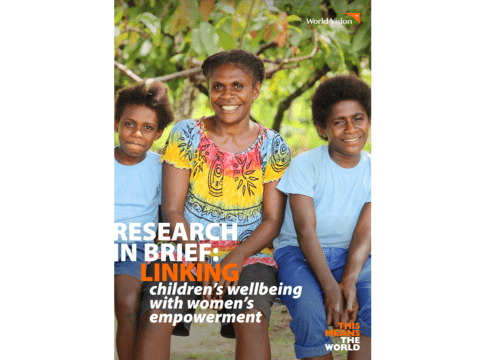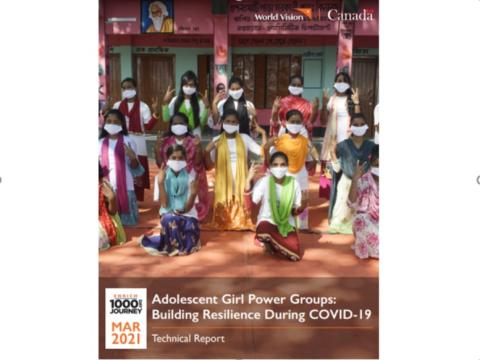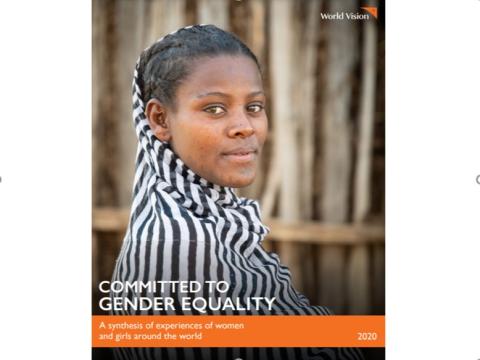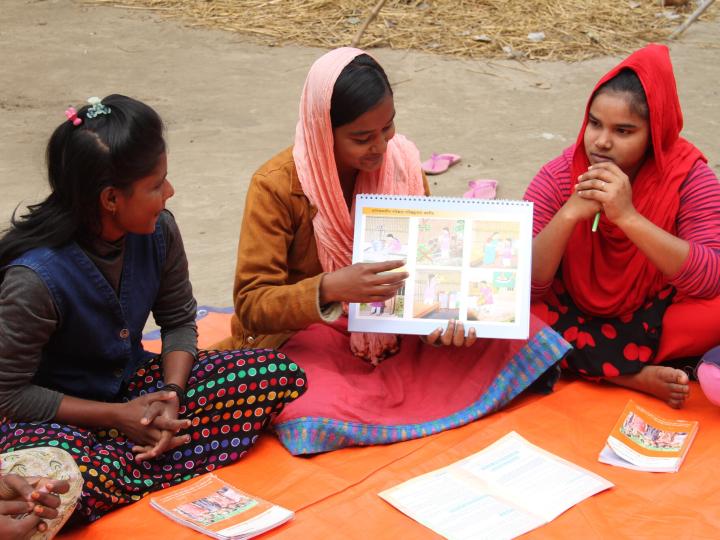
Sexual and Reproductive Health
We work with women and girls to access sexual and reproductive health and rights (SRHR) with the support of their communities, including men and boys. Together, they challenge gender inequality, gender-based violence and harmful traditional practices at the household, community and institutional level, and build health system capacity to provide gender-responsive and adolescent-friendly SRHR services.
Why is this important to us?
As a Christian organisation, World Vision is founded on the biblical principles that women and men, girls and boys are created equal in God’s image, and on Jesus’ love for all people without discrimination. We also recognise and affirm the equal worth, dignity and rights of all people, regardless of sex, gender identity, or expression.
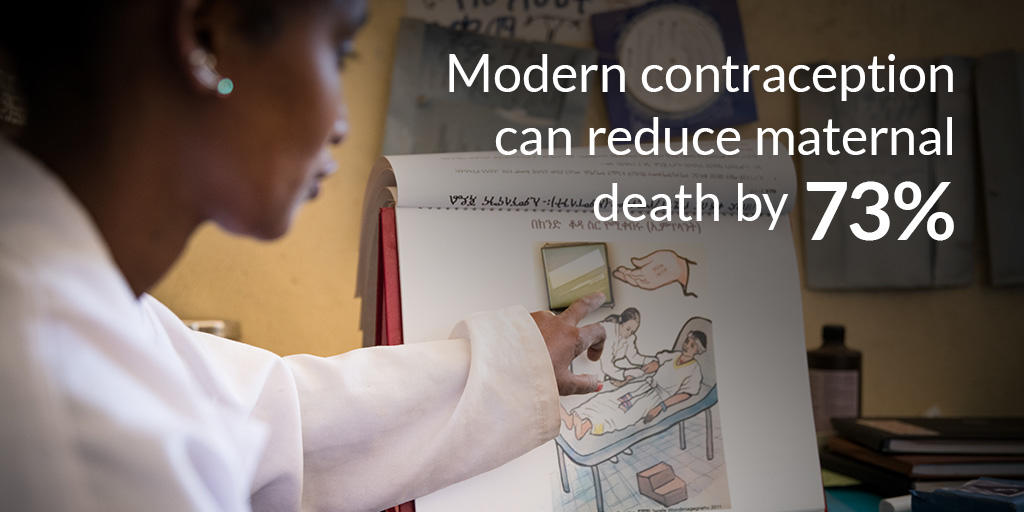
What we do
Gender Equality
World Vision’s approach to sexual and reproductive health is grounded in gender equality and the empowerment of women and girls. World Vision does this by engaging community members of all genders and ages, as well as faith leaders, in transformational conversations, creating champions to shift power dynamics and address systematic gender discrimination, eliminating harmful practices and norms like early marriage, gender-based violence or inadequate birth spacing. World Vision’s reproductive health programmes strengthen the partnership between men and women in their shared responsibilities; increase sensitivity to understand and overcome the lack of equity in the relationship between women and men, girls and boys; promote understanding of gender roles and gender equity; and work towards improving the social and economic empowerment of women and girls.
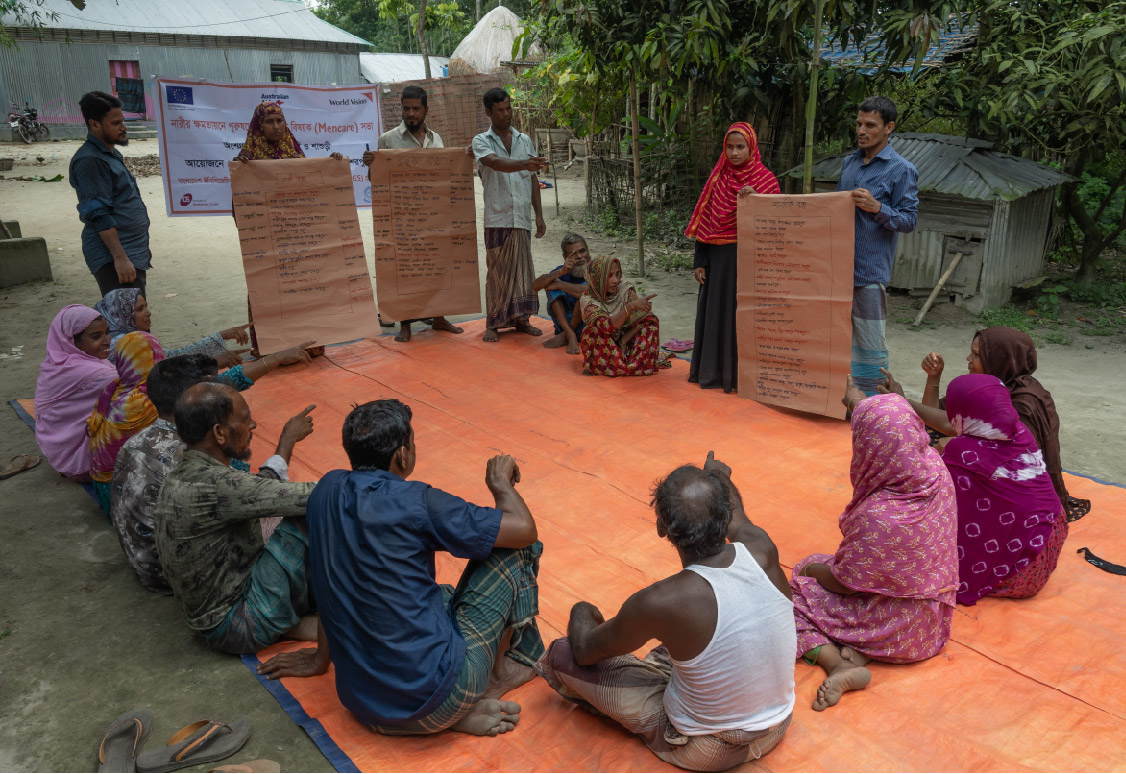
- Read about Muslima and Abu (standing, second and third from left in above photo), one of 6,855 couples in rural Bangladesh who are learning the importance of men and women’s equal participation for decision-making on family matters through the MenCare programme, one intervention of the Bangladesh Initiative to Enhance Nutrition Security and Governance (BIENGS) project (co-funded by the European Union and implemented by a consortium of national and international development entities).
- World Vision's research demonstrates how gender equality and women’s empowerment are prerequisites for raising safe and healthy children: Research in Brief: Linking Children's Wellbeing with Women's Empowerment
- Learn more about a promising practice on integrating Gender Equality and Social Inclusion into South Sudan's public healthcare system, to ensure equitable access to quality health services for all, support health systems reform, and address the social determinants of health: Prioritizing Gender Equality and Social Inclusion Across Health Interventions in Western Equatoria, South Sudan
- Read the blog: These gender equality warriors are breaking down barriers
SERVICE DELIVERY
World Vision works with Ministries of Health and non-state health care providers to enhance staff capacities to provide a wide range of sexual and reproductive health services, including:
- Pre, post-natal and newborn care
- Labour and delivery services
- Basic emergency obstetric care
- Prevention of unwanted pregnancies through contraceptive education including the use of modern contraceptives, as well as birth spacing and timing.
- Prevention, detection, treatment and counselling for sexually transmitted infections, in particular the transmission of HIV
- Sexual health education and behaviour change communication
- Active intervention to prevent harmful traditional practices, including Female Genital Mutilation/Cutting, Sexual and Gender-Based Violence, and Child, Early and Forced Marriage
- Empowerment of communities to prevent and address violence against, and exploitation of, children and women
Family Planning
World Vision works alongside community partners to address fears and misconceptions about family planning, and help women understand their options, when it comes to birth spacing, so they can choose a method that works best for them.
While educating women themselves has always been the focus of this kind of work, family planning is a complex issue, influenced by family, culture and religion. Women may not always be the chief decision makers in their own reproductive health. Women and men are influenced by their community’s norms and values—which are often linked to religious beliefs.
For this reason, World Vision involves other players in the education process, including faith leaders. We equip faith leaders with facts about the benefits of healthy timing and spacing of pregnancy, include the dangers of early and forced marriage, and early sexual debut.
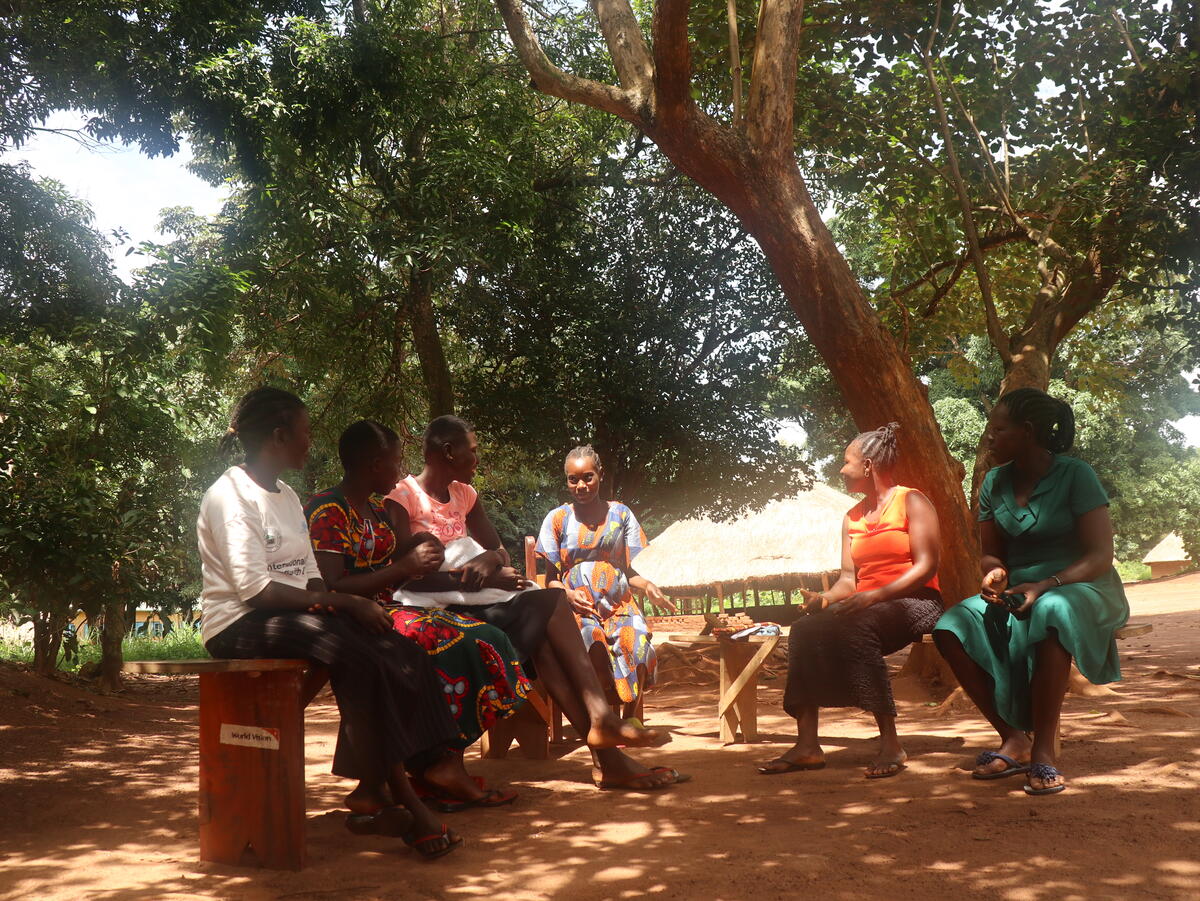
- Read about Jenty's experience - Jenty (pictured above centre) is now an advocate for women and girl's health. She is a leader of the trained mother-to-mother support group in her community in South Sudan, and counsels women regarding family planning. She says, "When I joined the group, I was able to reach out to 20 young mothers who were pregnant and dropped out of school and guide them make decisions. Twelve of them are now aware of the value of family planning and enrolled back to school." She adds:
I hold meetings with mothers to guide them as many are unaware of the danger they face without proper child spacing
- Read the article: Faith in Family Planning: Healthy Timing and Spacing of Pregnancies
- Watch a video (5:00) about World Vision's Healthy Timing and Spacing of Pregnancy project in Garba Tulla Kenya, a USAID-funded Advancing Partners & Communities project. This project included interventions targeting women and families to make informed decisions about delaying first pregnancies and proper spacing of subsequent pregnancies. This video was part of the 2018 CUGH-Pulitzer Global Health Video Competition.
Contraception
Contraception is something that many people take for granted. But for many in the global south, access is not only difficult – it is a matter of life and death. Today, a young girl in South Sudan is three times more likely to die in pregnancy or childbirth than to complete her primary education.
Contraception is a proven method to prevent unplanned pregnancy. Contraception prevents maternal and newborn deaths by giving women’s bodies a chance to rest and rebuild themselves after labour, preventing health risks like anaemia and high blood pressure.
- Read stories from the Born on Time project about how contraception and family planning made a difference in the lives of Tegagne in Ethiopia, Aboubacar in Mali, and Aktara in Bangladesh. (Born on Time was undertaken in partnership with World Vision Canada, Plan International Canada, Save the Children Canada, Government of Canada and Johnson & Johnson)
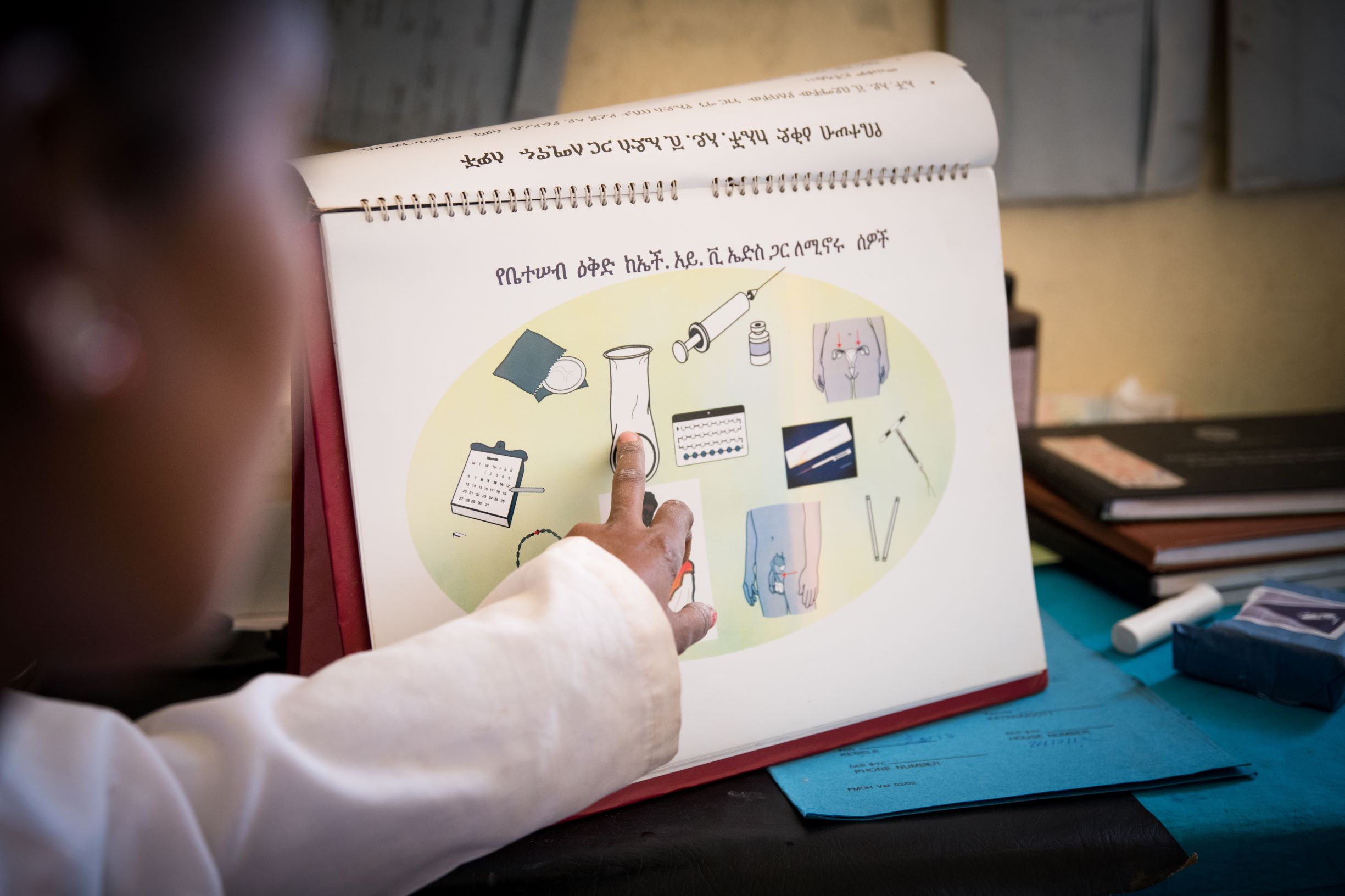
Comprehensive sexuality education
Comprehensive sexuality education is age-appropriate teaching about sex and relationships. Its aim is to reduce teenage and unplanned pregnancies as well as gender-based violence. Evidence tells us that this kind of teaching contributes to young people delaying first intercourse and reduces unplanned pregnancies. Educating adolescents and adult women about the importance of family planning and methods of contraception helps to prevent maternal deaths and improve the survival rate of children. Comprehensive sexuality education is foundational to our adolescent health strategy.
- Comprehensive sexuality education often takes place within Adolescent Girl Groups, like the Hena Girl Power Group in India and Adolescent Girl Power Groups in Bangladesh.
Sexual and Gender-Based Violence
World Vision works with communities to reverse the cycle of gender-based violence, including early and forced marriage, female genital mutilation/cutting, domestic violence and rape. In addition to empowering women and girls, our key approaches also work with faith leaders of all faith backgrounds, and men and boys. We have found that faith leaders have a unique role as change agents and enormous influence on their congregations, specifically, by challenging themselves and their members to acknowledge local gender injustices and using their influence to address these. In addition, as traditional power-holders, men have demonstrated that they are in a unique position to serve as influential gender-equality advocates by working with other men and boys to speak out against discriminatory gender norms that perpetuate discrimination and inequality including sexual and gender-based violence and harmful practices such as child marriage, and serve as positive role models for more gender-equal power relations between women and men. Read more about World Vision's campaign to end child marriage.
- Check out the Gender Transformative Framework for Nutrition, developed by World Vision in coalition with Action Against Hunger, Bruyère Research Institute, CARE, HealthBridge, MotherFood International, Nutrition International and Save the Children
- Learn how the Born on Time project engaged men as active partners of change for SRHR for women and girls through male engagement groups in Amhara, Ethiopia
- Listen to The Sexual Violence Research Podcast, a 12-part series featuring in-depth conversations with sexual violence research experts. The first episode, Engaging Men, features World Vision's mental health expert, Phiona Koyiet, discussing approaches to reduce violence against women and girls by supporting men with common mental health and psychological problems and the need to address gender inequality and discrimination from an early age.
- Learn how World Vision engages faith leaders to combat gender-based violence through the Channels of Hope for Gender approach
- Learn about World Vision's work to combat gender-based violence in the Democratic Republic of the Congo. The Equality for Girls’ Access to Learning (EGAL) project, implemented by World Vision and Make Music Matter and funded by the Government of Canada, builds the resilience of young women and girls to cope with the trauma of gender-based violence, reducing their anxiety, depression and post-traumatic stress disorder.
- Read the blog : Child Marriage and COVID-19: What happens when no-one's looking?
